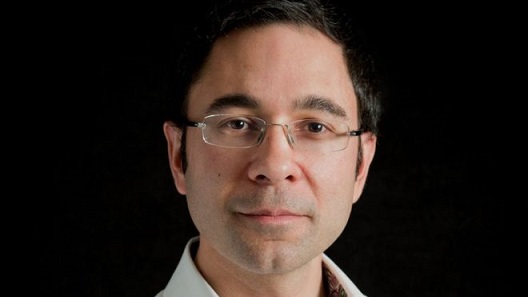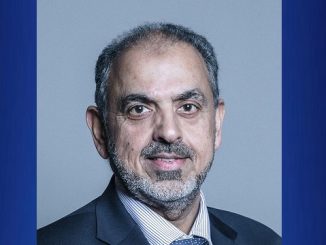
BBC Asian Network’s head of news has been found not guilty over the naming of a sexual abuse victim in a live radio broadcast.
Arif Ansari checked and approved a reporter’s script which named the woman, believing it was a pseudonym.
Victims of sexual offences are given lifetime anonymity by law.
After a two-day case Mr Ansari was found not guilty by a district judge at Sheffield Magistrates’ Court, who said the broadcast was an “honest mistake”.
Mr Ansari was on trial accused of breaching the Sexual Offences (Amendment) Act 1992. He denied the charge.
A BBC spokesman said: “From the start we have accepted that mistakenly naming a victim of sexual abuse during a live broadcast last February was a serious mistake.
“The CPS had a choice to charge the BBC and/or the editor. We firmly believe that it should have been the BBC itself answering in court for this mistake, rather than the individual editor.
“We are relieved with the court’s decision today.”
The charge related to a live radio broadcast on 6 February last year.
The journalist involved in the broadcast, Rickin Majithia, had gone to Sheffield Crown Court to hear evidence in a trial linked to the Rotherham sex abuse scandal when a victim’s real name was used, the court heard on the opening day of Mr Ansari’s trial.
Mr Majithia told the district judge, Naomi Redhouse, that he wrongly thought the name used was a pseudonym.
His report, including the name which was described as a pseudonym, was broadcast as part of a live news bulletin and the woman – who was a victim of the Rotherham abuse – was listening to the radio when her name was read out. She said she went into “full meltdown”, the court heard.
The charge was brought against Mr Ansari, in his capacity as editor. Mr Ansari had the role of checking and approving the script before it was broadcast, the court heard.
‘I trusted his journalism’
Giving evidence to a judge sitting at Sheffield Magistrates’ Court on Friday, Mr Ansari, 44, said he considered reporter Mr Majithia to be an excellent colleague who was very driven.
“I trusted his journalism,” Mr Ansari said. “He was a good journalist.
“This was not a complex legal issue. This is as basic as it gets. This is what journalists are taught at journalism school.”
Mr Ansari added: “It just struck me as 100% accurate. Rickin was a senior journalist, one of my senior reporters.
“He had a background, professional relationship with the victim in question. I didn’t. I had never met her. I was in London.
“Furthermore, I knew that he knew that he could not name her, use her real name. Put all these factors together, it did not occur to me that this could be wrong.
“I trusted my reporter and the reason I sent him to Sheffield was to make sure he got it right.”
‘State of panic’
Mr Ansari added that he regarded Mr Majithia as a “loose cannon” at times, but only because of a lack of co-ordination about what he was doing.
After the live on-air news report was broadcast and named the victim on 6 February last year, Mr Ansari said Mr Majithia called him in a state of panic saying: “I’ve got the name wrong, it wasn’t a pseudonym, it was her real name.”
Mr Ansari told the court the pair met in a pub in London later that evening, where Mr Ansari says he was shocked to realise that Mr Majithia had never reported from court before.
“I remember being somewhat shocked that he hadn’t previously told me that,” he told the court.
Mr Ansari described Mr Majithia as “very badly shaken” and “in a really bad way” when he returned to London.
Previously on Thursday – the first day of the trial – the court heard a witness statement from the woman who said she was “panicking and crying”.
She said she had found the process of giving evidence in the sex abuse trial at Sheffield Crown Court difficult and added: “To then have my name given out as a victim of rape on a BBC radio station was unbelievable and made me feel sick”.
The court also heard how Mr Majithia had sent Mr Ansari his script for approval at about 16:35 GMT, and it was broadcast live at 17:00.
Mr Majithia explained to the court how the woman gave evidence in court from behind a screen and he wrongly assumed that when her forename was used in court it was a pseudonym.
The reporter said that he had a number of previous dealings with the woman as he investigated the Rotherham abuse scandal and had become confused, thinking that the name he had always called her was her real one, when it was not.
Lifelong protection for victims
The prosecution had said it accepted Mr Ansari did not know or suspect the victim’s real name was in the script but said he had good reason to suspect the name that was used might be wrong because Mr Majithia was inexperienced.
Mr Ansari was charged with – and then cleared of – breaching the Sexual Offences (Amendment) Act 1992, which entitles all complainants of sexual offences to lifelong anonymity.
From the moment a complaint of sexual abuse is made, all publishers and broadcasters are banned from naming the complainant unless they choose to waive their anonymity or a court orders otherwise.
It is the first time a BBC editor had been charged under this Act.
Source: bbc.co.uk






Be the first to comment